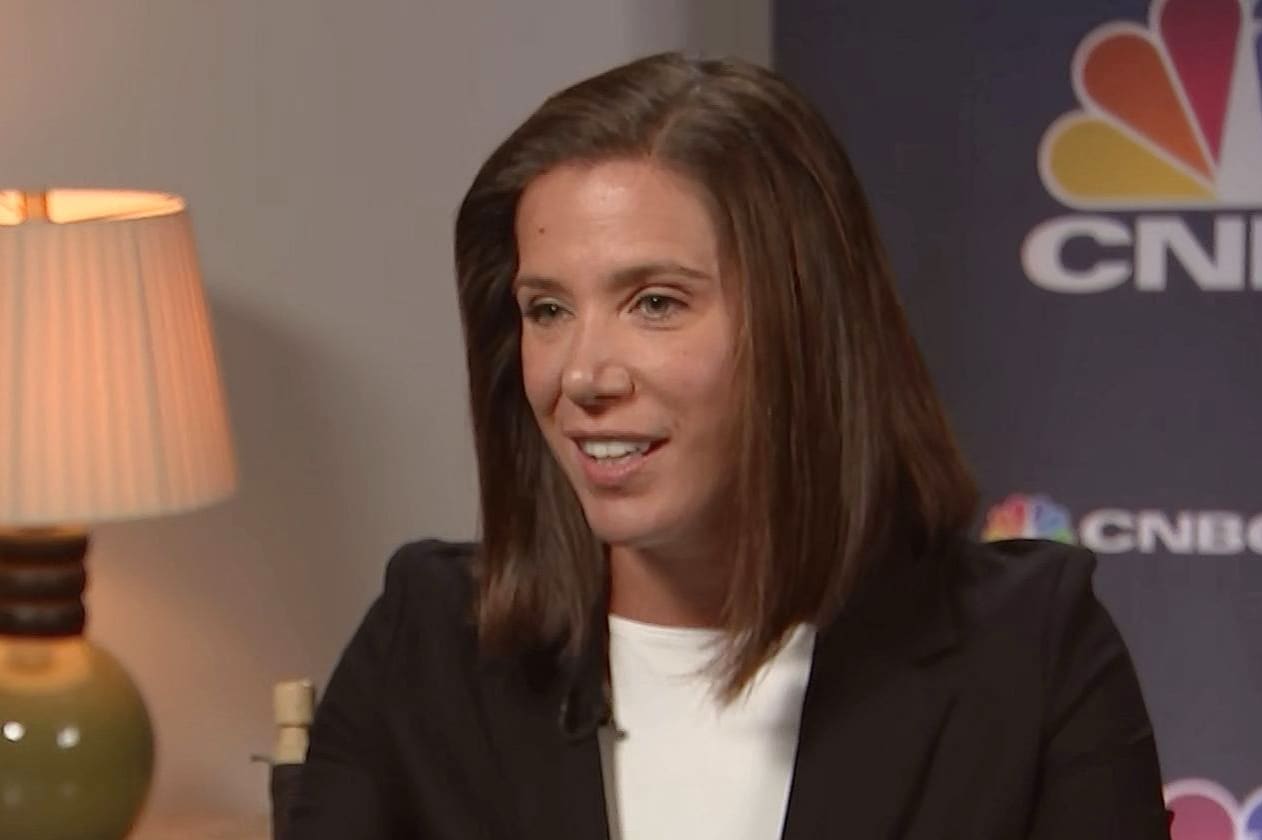When executives at consumer-facing companies refer to their customer, it’s typically using the pronoun “she.”
It’s ironic, that very few of those same companies are run by women.
That’s not the case at Best Buy.
Corie Barry took over the top job in June as the consumer electronics retailer’s first female chief executive, one of only 27 female CEOs in the S&P 500, according to Catalyst. At 44 years old, she is also the youngest female CEO in the Fortune 100.
Barry’s advice to other women in business is “make yourself uncomfortable, and to take sometimes, the jobs no one else wants.”
“Have those uncomfortable moments. Because my strong personal belief is it is those moments that cause you to grow the most yourself, but that also differentiate you the most in your career.”
Corie Barry
Best Buy, CEO
She has spent the vast majority of her career at Best Buy, after two years as an auditor with Deloitte & Touche. In her nearly two decades at the consumer electronics retailer, Barry has held 15 different roles, including president of Geek Squad Services and chief financial officer.
“My career path is anything but linear,” Barry said in an interview with CNBC. “I spent time in finance. I spent time actually living and working in the field in retail. I spent time running services. I started our strategic growth office. I’ve had the chance to run our technology teams.”
Barry’s message to other women is to “speak up with the point of view in the room that may not be popular. Have those uncomfortable moments. Because my strong personal belief is it is those moments that cause you to grow the most yourself, but that also differentiate you the most in your career.”
It’s also been beneficial to Barry and other women at Best Buy, that the company’s current and former leaders make a concerted effort to seek out diverse points of view and backgrounds.
Hubert Joly addressed the topic at a CNBC Evolve event in June, just days after passing the CEO baton to Barry and transitioning to executive chairman.
“If a boy — I’m going to say a ‘boy’ — is 80% ready for a promotion, he says: ‘I’m ready.’ If a woman is 125% ready for a promotion, she will say: ‘Oh, I’m not sure.’ So as a leader, you need to be able to recognize this and reach out to the women on the bench and say: ‘You know, Corie, you’re ready. And I’m going to support you.’ “
When asked about Joly’s example, Barry smiled, and pointed to studies that show this is true for women on the whole but in her experience, it can be true with other genders too.
“It’s why I start with making yourself uncomfortable, because somewhere in here, you’re going to have to be willing to put yourself in a space that you don’t quite feel ready to fill, and then leverage all the resources around you to help you be successful.”
While seven of Best Buy’s 13 board members are women, it’s also notable that the last four board members recruited are people of color.
“There’s two big systemic issues in my view: gender and then people of color, particularly, African Americans,” Joly said at the CNBC Evolve event. “The majority of [consumer] decisions are made by women … it’s a business imperative, it’s also a moral imperative, also a societal imperative.”
He also explained the consumer electronics company tasked the board recruiters to bring in great African American candidates. “It brings enormous value and a much better environment,” he said.
Ariel Investments co-CEO Mellody Hobson told him that infrared sensors on automatic sinks don’t always work as well with darker skin tones, something Joly didn’t know before that conversation.
Seeking diverse viewpoints from leadership “is not a politically correct thing to do. This is vital from a business standpoint,” Joly said in the on-stage interview. “You have a choice, you can decide you’re going to miss, or you can decide that you’re going to maximize the opportunity.”
Barry calls Best Buy’s board diversity “such a luxury” and noted the diversity is not only ethnic, but also spans backgrounds and expertise.
“It’s proven,” she said. “When you have boards, when you have management teams with more diversity, you’re going to get better business outcomes because you’re taking into account so many points of view. And I fundamentally believe that’s true for us.”
